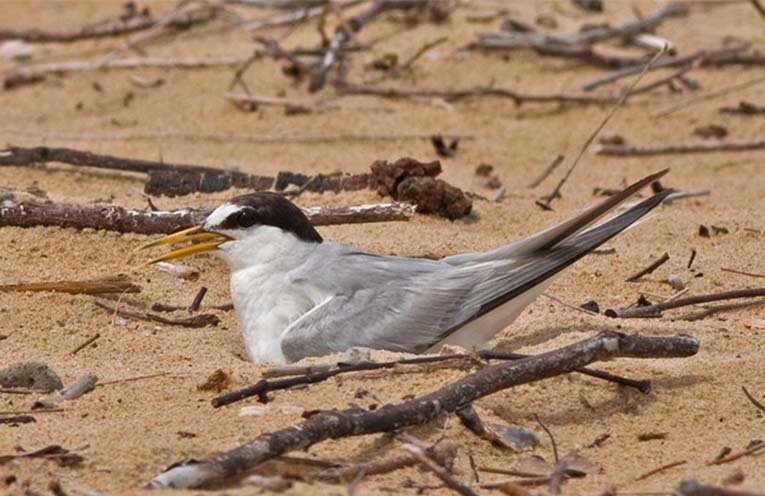
WITH the return of spring comes the start of beach-nesting bird season on beaches up and down the coast, and NSW National Parks and Wildlife Service (NPWS) is taking this opportunity to remind the public on how you can best help these precious birds.
Each year threatened birds such as Little Terns, Pied Oystercatchers, Hooded Plovers and Beach Stone-curlews lay their eggs on beaches up and down the east coast, where they are highly camouflaged and can be very difficult to see.
Due to threats including native and introduced predators, crushing and disturbance from vehicles, humans and domestic dogs, flooding of nesting sites and adverse weather conditions, most beach-nesting birds remain endangered in NSW.
Here are a few small things you can do to ‘share the shore’ and help endangered beach-nesting birds raise their chicks on our beaches:
● Keep an eye out for and respect bird nesting signs and fenced-off nesting areas on the beach.
● Make sure dogs are only walked on an approved dog-beach and always kept on a leash.
● Walk on the wet sand to avoid nesting birds.
● Only drive on designated 4WD beaches and stay below the high tide mark to avoid accidentally crushing a chick.
● Ensure you take fishing lines and rubbish with you, to ensure avoidable deaths from entanglement or ingesting rubbish are avoided.
“Beach-nesting birds rely on the camouflage of their eggs and chicks to keep them safe, but on busy summer beaches, this strategy can really backfire,” NPWS Threatened Species Project Officer Katherine Howard said.
“You might not see the eggs or chick until it’s too late.
“We need all beach users to ‘share the shore’ with our feathered friends by following a few easy guidelines and leaving some space for birds to raise their families.
“Off-leash dogs may seem harmless, but they are terrifying to birds, causing them to fly away and leave eggs unguarded. Please check online whether dogs are allowed at your beach before you go, keep them on a leash and keep them well away from nesting birds.”
Last season was a good one for Little Terns which experienced an almost 15 percent increase in breeding pairs from the previous season across the state.
